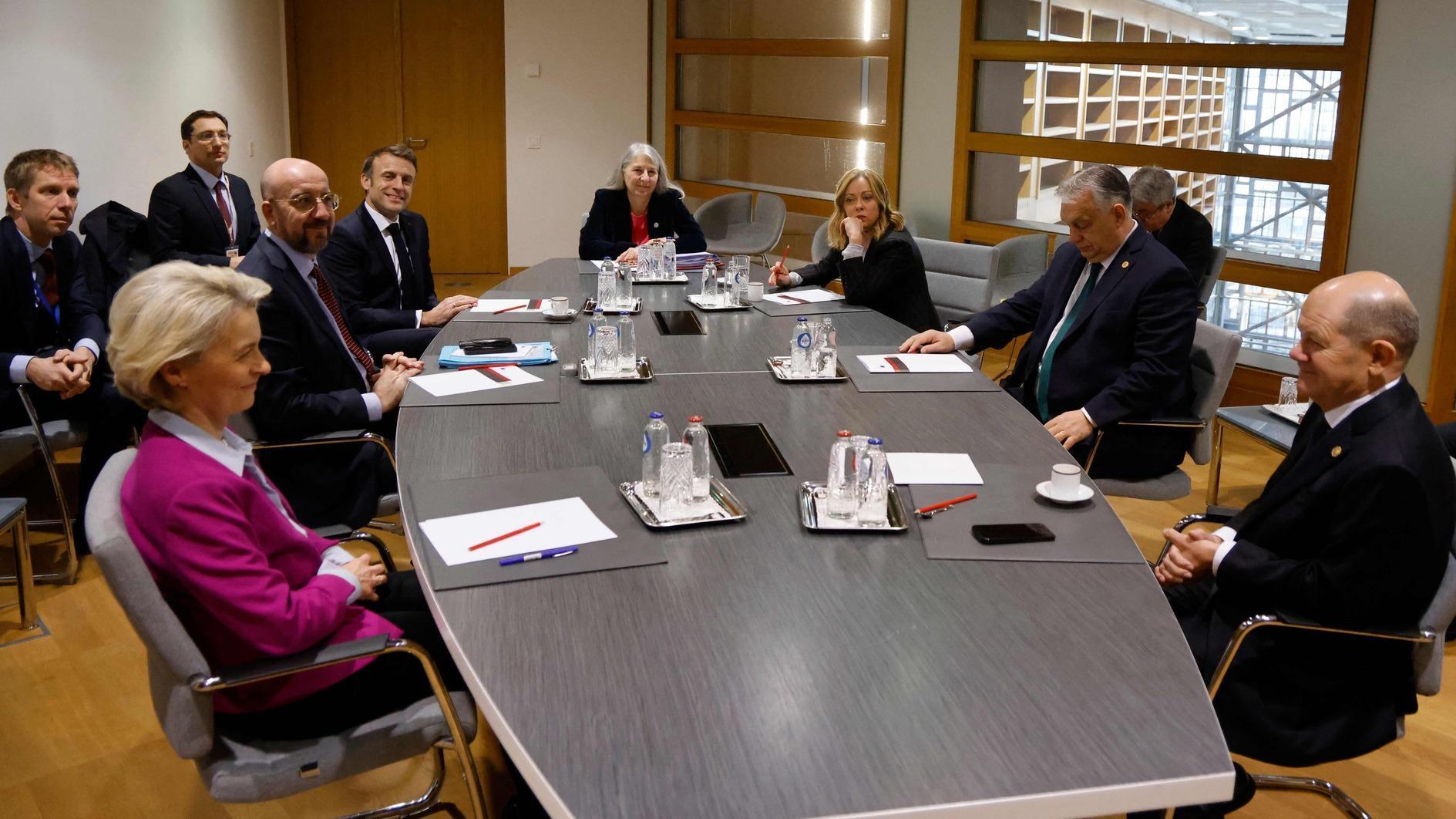
EU leaders on Thursday piled pressure on Viktor Orban to drop his veto on 50 billion euros in aid for Ukraine, as the unpredictable Hungarian leader once more took centre stage at a crunch summit in Brussels.
The latest EU showdown took place against the backdrop of swelling protests by European farmers, who clogged roads around the summit with 1,300 tractors in a show of strength, lighting fires and pulling down a city statue.
Orban — Russia's closest ally in the EU — sparked fury from his 26 counterparts in the bloc by thwarting a December deal to keep the desperately needed funds flowing to Kiev nearly two years into Moscow's invasion.
Speaking on arrival at the summit, German Chancellor Olaf Scholz said the goal should be a unanimous agreement on maintaining the aid.
"We need an agreement at 27," he told reporters. "We shouldn't look out for workarounds."
Dutch Prime Minister Mark Rutte struck an upbeat tone, saying he was "cautiously optimistic" that a deal could be found if Hungary was willing to compromise.
But facing down Orban, a veteran of numerous run-ins with Brussels, will not be easy and the political arm-wrestling in the EU capital is set to last for hours.
Ever image-conscious, the Hungarian nationalist sought to capitalise on the anger of farmers — whose grievances include the flood of cheaper Ukrainian imports triggered by the conflict — sharing a video online of himself visiting them Wednesday night.
"It's a European mistake that the voice of people is not taken seriously, they are not taken seriously by the leaders," Orban said.
Just before the summit kicked off he held what he called a "casual morning conversation" with Scholz, French President Emmanuel Macron, Italian Prime Minister Giorgia Meloni and EU chiefs Ursula von der Leyen and Charles Michel.
'Orban fatigue'
Orban has been accused of holding Ukraine's future hostage in a bid to blackmail Brussels into releasing billions of euros in frozen EU funds for Budapest.
"We don't have a problem with so-called Ukraine fatigue for sure, we have Orban fatigue now in Brussels," said Polish Prime Minister Donald Tusk.
"It's for Viktor Orban to decide if he is a part of our community."
EU officials have been trying to thrash out a compromise with Hungary to get agreement on the four-year package for Ukraine as part of a broader overhaul of the bloc's budget.
Other leaders have rejected a proposal from Budapest that Orban could approve the aid if he gets the chance to veto it again each year — and are instead offering him only an annual debate on the issue.
If they cannot convince Orban to drop his opposition, EU leaders have pledged to club together as 26 to keep aid flowing for Ukraine's government to keep paying salaries and services.
But with Kiev facing possible budget shortfalls by spring and doubts over support from the United States, that option would take more time to put in place and likely cover aid for only one year.
Mounting frustration at Hungary's role as spoiler has seen calls grow for other leaders to unleash the EU's Article 7 and strip Budapest of its voting rights.
That would take unanimity from all other 26 leaders and few have been willing to push publicly for this "nuclear option" just yet.
'Blackmail'
The major leverage for Brussels is around 20 billion euros ($21.7 billion) in frozen EU funds that it refuses to give Budapest because of its poor record on issues including corruption and LGBTQ rights.
In December, Orban allowed through a decision to open membership talks with Kiev a day after getting a separate 10 billion euros released from Brussels.
And there are strong suspicions that he is playing the same game of chicken now to try to get more money, even if Brussels insists the two issues are not linked.
"I don't want to use the word blackmail, but I don't know another better word," Estonia's Kaja Kallas said.
While the focus in the room was Orban, outside the nearby European Parliament protesting farmers burnt tyres as they did their best to make sure their grievances were heard.
"We need to be able to discuss in the council on this topic because the concerns that they have are partly legitimate," said Belgium's Prime Minister Alexander De Croo.